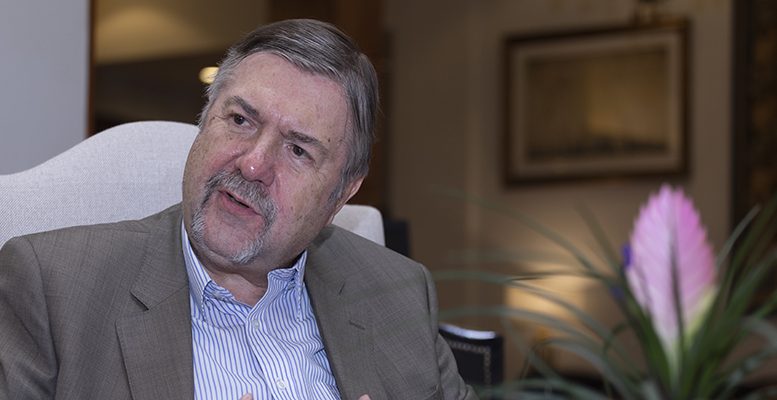One of our contributors is one of the main Spanish experts in valuing companies, Pablo Fernandez, Professor at IESE business school, always says that figures, balance sheets and financial statements are always a bit different from the ones the company presents itself. This is the principle to understand accountability. Can you comment?
I agree with him. One of the main reasons for this is that the financial statements as they are drawn up to day have to follow very strict accounting rules, which we call standards. And it is very difficult for companies to get out of this strait jacket of standards. Now the point that I´m trying to make in my presentation tonight is that we should concentrate more in financial statements on matters that are really important for the society of today. The companies that we have today are different from the companies that we had yesterday. The society also reacts differently. A company that may have a great value based on its balance sheet may tomorrow be worth nothing, because the company has the wrong business model. And the financial statements do not reflect the business model of the company. They do not look at the long term. They do not describe those values that reflect the long-term sustainability of the business. And in order to change that we need to change our accounting standards. We need to take on the balance sheet new assets and new liabilities, so that the financial statements reflect what they are supposed to do, and you call that in Spain “Imagen fiel”, the true value, which they do not do any more.
And now that you mention that, do you think that the big technological companies, Amazon, Google or Facebook, can change or should change the way in which their accountability is perceived and performed? They create value in a very different way.
Yes. Absolutely. A lot of what counts very much today are what we call the non-tangible assets. Those assets which do not figure in the balance sheet. They may be due to know how, technological knowledge, the fact that the company has a great group of researchers and an IT department that is top notch in the field. That is not reflected in the balance sheet. The problem is that more and more companies today are publishing other reports, integrated reporting sustainability reporting … And my points is that with all these reports you make things very complicated for the reader, because which report is really important now. Is it the traditional financial statements? Or these other reports? And I believe that this is a very urgent issue because particularly if you look at climate change today and the whole debate we have in Europe about sustainability, we must change our accounting standards as quickly as possible. Because society is asking for it. Society does not want to read financial statements that are old fashioned. They want to know about companies and how these companies will grow potentially in the future. So we need to have accountants who have the courage.
But how? How can we count block chain or internet domains or big data? Things like that? How do you integrate that?
Well, I worked thirty years in the European Commission, and whenever an expert came to me and he said that it´s difficult to do this, then I said I´ll take another expert. It´s not that we cannot do it, but we don´t have the courage to do it. And that is wrong.
So it´s a question of courage?
Yes, to me it´s a question of courage.
But it´s such a huge task that people think it´s impossible to do it.
I would disagree with that. I´ll give you an example, to show you why you need courage. Take insurance. When I conclude a life insurance contract with you and I promise you a guarantee for thirty years I create a liability for thirty years on my balance sheet. I do not know the future. Will you survive? How long will you live? I don´t know. But we do account for this today. Thirty years ahead. And now you´re telling me we have these intangibles and we cannot calculate the value of the assets. We can calculate the value of the liability and we cannot calculate the value of the asset. I disagree.
There are many people today saying that intangible values are over tangible ones at the time of creating value for companies but I´m not sure if it´s just a mantra, whether it’s a dream or a reality.
It is a reality.
So non-tangibles are over tangibles. Nowadays.
Companies today, which have no assets on their balance sheets, because all the assets they have all the values of the company are intangible. They are non-tangible. They are for instance research projects that I´m conducting, I´m going to develop a medical drug. These companies they cannot account for their research.





